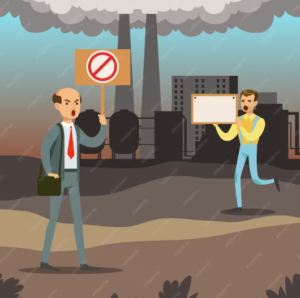how environment affects health
Introduction: Understanding the Impact of Environment on Health
In our bustling modern lives, we often overlook the profound influence of our environment on our health. The air we breathe, the water we drink, and the surroundings we inhabit significantly impact our well-being. Among these factors, air pollution stands out as a critical concern affecting millions worldwide. This article delves into the intricate relationship between environmental factors, particularly air pollution, and human health. Moreover, it provides practical steps to mitigate air pollution and safeguard our health.
The Link Between Environment and Health
Our environment plays a pivotal role in shaping our health outcomes. Air pollution, in particular, poses significant risks to human health. Fine particulate matter (PM2.5), nitrogen dioxide (NO2), sulfur dioxide (SO2), ozone (O3), and carbon monoxide (CO) are among the common pollutants that can infiltrate the air we breathe. Prolonged exposure to these pollutants is associated with a myriad of health issues, including respiratory diseases, cardiovascular problems, and even premature death.
Understanding the Impact of Air Pollution on Health
- Respiratory Health: Air pollution can exacerbate respiratory conditions such as asthma, bronchitis, and chronic obstructive pulmonary disease (COPD). Inhalation of pollutants irritates the airways, leading to inflammation and respiratory distress.
- Cardiovascular Health: Long-term exposure to air pollution is linked to an increased risk of cardiovascular diseases, including heart attacks, strokes, and hypertension. Pollutants can trigger inflammation, raise blood pressure, and promote the formation of arterial plaques.
- Neurological Health: Emerging research suggests that air pollution may have adverse effects on neurological health. Exposure to pollutants has been associated with cognitive decline, Alzheimer’s disease, and other neurodegenerative conditions.
Steps to Reduce Air Pollution and Improve Health

- Promote Clean Energy: Transitioning to clean energy sources such as solar, wind, and hydropower can significantly reduce air pollution emissions. Supporting renewable energy initiatives and investing in sustainable technologies are crucial steps toward a cleaner future.
- Encourage Green Transportation: Embracing eco-friendly modes of transportation, such as walking, cycling, and using public transit, can help curb air pollution from vehicular emissions. Additionally, switching to electric or hybrid vehicles reduces reliance on fossil fuels and minimizes harmful exhaust fumes.
- Reduce Household Emissions: Implementing energy-efficient practices at home, such as proper insulation, using energy-saving appliances, and reducing waste, can lower household emissions. Furthermore, opting for clean-burning fuels and minimizing indoor air pollutants contribute to healthier indoor environments.
- Support Environmental Policies: Advocating for robust environmental policies and regulations is essential for combating air pollution on a larger scale. Holding governments and industries accountable for reducing emissions, enforcing clean air standards, and investing in pollution control measures are critical for safeguarding public health.
Conclusion:
As we navigate the complexities of the modern world, prioritizing environmental health is paramount. By understanding the profound impact of air pollution on our well-being and taking proactive steps to reduce emissions, we can create a healthier environment for current and future generations. Each individual action, whether it’s advocating for clean energy policies or adopting sustainable lifestyle practices, contributes to the collective effort in combating air pollution and safeguarding public health. Together, let us strive towards a cleaner, healthier future for all.
In conclusion, reducing air pollution is not just a matter of environmental conservation; it’s a fundamental aspect of preserving human health and well-being. Through collective action and individual responsibility, we can mitigate the adverse effects of air pollution and pave the way for a healthier planet.
FAQs: Addressing Common Concerns
Q. What are environmental factors affecting health?
Ans. Environmental factors affecting health include air and water quality, access to green spaces, exposure to pollutants, and climate conditions.
Q. What are the effects of the environment on health?
Ans. The environment can impact health through pollution-related diseases, respiratory issues, mental health effects, and increased risks of natural disasters.
Q. What are the 5 major impacts humans have on the environment?
Ans. The five major impacts humans have on the environment are habitat destruction, pollution, deforestation, climate change, and overexploitation of natural resources.
Q. How does the environment affect the person?
Ans. The environment affects individuals through physical health, mental well-being, lifestyle choices, and susceptibility to diseases.




